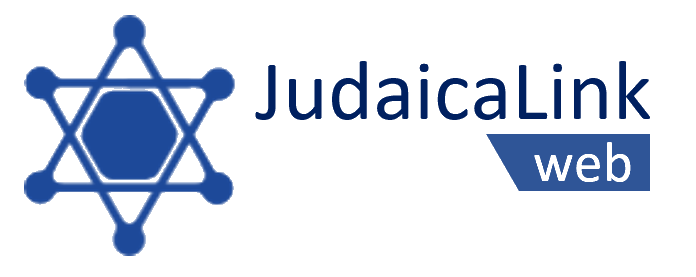FREQUENTLY ASKED QUESTIONS (FAQ)
What do you offer with JudaicaLink?
What does it cost?
What do we have to do?
What license should we use?
How are you funded?
Is software and data freely and openly available?
How can I search the data?
Why do the data pages look so ugly?
What do you offer with JudaicaLink?
We want to make reference works like encyclopediae accessible on the Linked Data web. We want to enrich them by creating new links between different encyclopediae and within encyclopediae. We offer to help you developing a strategy regarding the proper publication of your content and of the derived data version on the web. We support you to choose the right license for you and we provide consulting regarding the technical implementation on your website.
JudaicaLink is our central platform to provide access to the data versions of your encyclopediae. Depending on your local infrastructure, the whole Linked Data version of your encyclopedia can be provided via JudaicaLink or via your own website. In the latter case, JudaicaLink is just used to provide complementary information and a central search functionality.
What does it cost?
JudaicaLink is a non-for-profit project and everything we offer is free of charge.
What do we have to do?
This depends on your ambitions and local technical possibilities. If your encyclopedia is already online, then you only have to give us the permission (explicit or via a general license) to create a Linked Data version of the encyclopedia and publish it on JudaicaLink.org. Beside that, the minimal requirement is that you keep the URLs of the articles in your encylcopedia stable.
If you want to provide Linked Data on your own website, together with your encyclopedia (which is highly recommended), then the requirements increase. It depends again on what you have and what you want, but in general, the requirements are rather moderate. We are very experienced in publishing Linked Data in many different ways and are quite positive to find the right solution for you.
You can reach out to us here: Contact Team
What license should we use?
Whatever license you want to use for your encyclopedia is fine for us. We however encourage people to use an open license.
CC-BY is a good choice for an open encyclopedia, but maybe a tighter license like CC-BY-ND (no-derivatives) is desired, where noone is allowed to make a derivative of your work, but might republish and use it, of course with proper attribution to you as the rights holders.
You could even use no license at all which means that noone is allowed to do anything without your consent (all rights reserved). If the license does not permit to create derivatives, we only need the expressed, written permission from you to republish the encyclopedia (or at least parts of it) as Linked Data on JudaicaLink.org.
How are you funded?
Currently, we receive funding for Maral from the German Research Foundation for our participation in the development of the specialized information service Jewish Studies (FID Jüdische Studien) at the University Library of Frankfurt.
The technical resources to actually run JudaicaLink are provided by the WISS Research Group of the Stuttgart Media University.
Is software and data freely and openly available?
Yes, of course. All our data is available as downloadable data dumps, see at our datasets.
All software to create the data and to produce this very website is available on GitHub:
How can I search the data?
Development of a proper search functionality that is more suitable for end users is planned for end of 2018. Currently we focus on the integration of our various datasets and the contextualization of the data in the FID project.
However, you can always use our SPARQL endpoint to query our knowledge graph.

